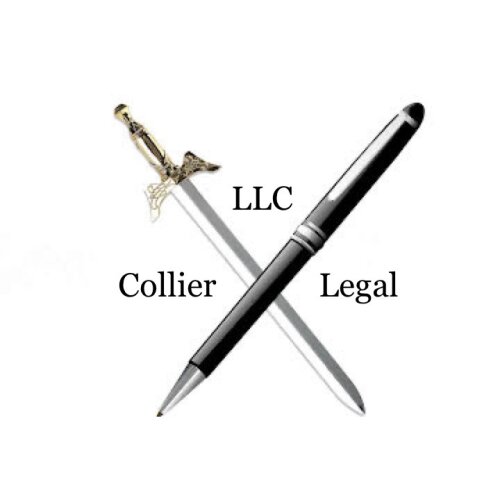Best Lawyers in Ohio
Share your needs with us, get contacted by law firms.
Free. Takes 2 min.
Or refine your search by selecting a city:
List of the best lawyers in Ohio, United States
United States Legal Questions answered by Lawyers
Browse our 38 legal questions in United States and read the lawyer answers, or ask your own questions for free.
- Internal investigation of sexual harassment in US
- I’m from [company removed], based in Hong Kong. One of my firm’s US employee reported to internal legal that I have sexually harassed her during my last trip to New York. An internal investigation is kicking off and I will be interviewed by firm legal. Also I have the opportunity... Read more →
-
Lawyer answer by M BILAL ADVOCATES, CORPORATE & TAX CONSULTANTS
If you are facing a sexual harassment allegation and an internal investigation in the U.S., do not submit a written statement or attend an interview without proper legal guidance. Anything you say can significantly impact your career, reputation, and potential...
Read full answer - Prenup Review and Signature
- I am looking for a Brazilian attorney to legally review a prenup with my fiancée. The prenup is only 18 pages written in both English and Portuguese. My fiancée speaks and reads English. The prenup follows USA/Virginia law. Once reviewed and signed by a lawyer with my fiancée, she can... Read more →
-
Lawyer answer by Castro Magalhães Law Offices
February 23, 2026 Proposal for Legal Services: Review of Prenuptial Agreement Dear Client, I am pleased to submit this proposal for the provision of legal services related to the review of a prenuptial agreement drafted in accordance with the laws...
Read full answer - Prenup Review and Signature
- I am looking for a Brazilian attorney to legally review a prenup with my fiancée. The prenup is only 18 pages written in both English and Portuguese. My fiancée speaks and reads English. The prenup follows USA/Virginia law. Once reviewed and signed by a lawyer with my fiancée, she can... Read more →
-
Lawyer answer by Castro Magalhães Law Offices
Castro Magalhães Sociedade Individual de Advocacia Carlos HB de Castro Magalhães OAB/RJ 080.783 | OAB/SP 501.014 Avenida Presidente Vargas, 3131, sala 604, Cidade Nova, Rio de Janeiro, RJ Avenida Paulista 1471, conjunto 511, CP 3622, Bela Vista, São Paulo, SP...
Read full answer
United States Legal Articles
Browse our 33 legal articles in United States written by expert lawyers.
- New York Climate Superfund Act Liability 2026 Guide
- This new US climate cost recovery law is retroactive and targets large historical greenhouse gas (GHG) emitters in energy, industrial, and logistics sectors as "responsible parties" for a $75 billion fund. Liability is strict: the government does not need to prove fault, negligence, or causation of specific climate harms, only... Read more →
- NY 2026 Corp Tax: Thresholds & Franchise
- For tax years beginning on or after January 1, 2026, New York businesses will only be required to make estimated tax payments if their expected New York tax (including any MTA surcharge) is at least $5,000, up from $1,000. Many small and some mid-sized New York corporations and S corporations... Read more →
- Are Non-Competes Enforceable in New York?
- Non-competes are still legal in New York and most of the United States, but courts apply strict scrutiny and often refuse to enforce broad, form agreements. Governor Hochul vetoed New York's broad non-compete ban (often referenced as S4641A / S3100A) in December 2023, so as of my last update there... Read more →
About Hiring a Lawyer in Ohio, United States
Hiring a lawyer in Ohio involves several steps to ensure you receive qualified and effective legal representation. The process typically begins by identifying the type of legal issue you face, such as criminal defense, family law, personal injury, or business matters. Once you know your needs, you can start by researching law firms or attorneys who specialize in the relevant area of law. Referrals from friends, family, or professional associations can be valuable, or you can consult the Ohio State Bar Association's lawyer directory.
Once you have a shortlist, schedule initial consultations to discuss your issue, evaluate their experience, and understand their fee structures. Most lawyers will outline their rates during a first meeting, which may be free or billed at a reduced rate. Before hiring, always review the attorney’s credentials, disciplinary record with the Supreme Court of Ohio or the local bar association, and client reviews if available. After making your choice, formalize the attorney-client relationship through a written agreement outlining fees, services, and expectations.
Why You May Need a Lawyer
There are many situations where Ohio residents may find it beneficial or necessary to consult a lawyer. Common scenarios include:
- Facing criminal charges or investigations
- Going through a divorce or child custody dispute
- Dealing with personal injury claims resulting from accidents
- Drafting or contesting a will or estate plan
- Handling real estate transactions or disputes
- Beginning or dissolving a business
- Confronting employment-related issues such as discrimination or wrongful termination
- Needing immigration assistance
- Addressing consumer protection matters or facing debt collection
- Appealing government decisions regarding benefits, licenses, or permits
An attorney can help you understand your rights, assess your legal options, represent you in negotiations or court, and help ensure you comply with complex state and federal laws.
Local Laws Overview
Ohio’s legal system is governed by its own constitution, state statutes, administrative rules, and local ordinances. Key areas of law relevant to most residents include:
- Criminal Law: Ohio classifies crimes as misdemeanors or felonies, each with distinct procedures and penalties. The Ohio Revised Code outlines these laws.
- Family Law: Issues such as divorce, child custody, child support, and adoption are all managed under Ohio law, which applies an equitable distribution standard for dividing property and prioritizes the best interests of the child in custody cases.
- Personal Injury: Ohio follows a comparative fault system. Plaintiffs found more than 50 percent at fault for an accident typically cannot recover damages.
- Employment Law: Both federal and Ohio laws protect employees from discrimination and provide for rights such as minimum wage, workers’ compensation, and unemployment benefits.
- Real Estate: Ohio has specific requirements for property sales, landlord-tenant relationships, and foreclosures.
- Estate and Probate Law: Ohio law governs the creation and execution of wills, trusts, and the probate process after someone passes away.
Laws can differ by city or county, so it is important to consult a lawyer familiar with local regulations.
Frequently Asked Questions
How do I verify that a lawyer is licensed to practice in Ohio?
You can check an attorney's license status and disciplinary history using the Attorney Directory available from the Supreme Court of Ohio.
What should I expect during my first meeting with a lawyer?
During your initial consultation, you should be prepared to discuss the details of your situation, ask about the lawyer’s experience, and inquire about fees and payment arrangements.
How are legal fees structured in Ohio?
Legal fees may be billed by the hour, as a flat fee for specific services, or on a contingency basis (common in personal injury cases). Make sure you understand and agree to the fee arrangement before hiring your lawyer.
Can I get free or reduced-cost legal services in Ohio?
Yes, there are legal aid organizations and pro bono services throughout Ohio for those who qualify based on income or specific needs.
How do I file a complaint against a lawyer in Ohio?
Complaints can be submitted to the Office of Disciplinary Counsel, under the authority of the Supreme Court of Ohio.
Is everything I tell my lawyer confidential?
Yes, in general, communications between you and your lawyer are protected by attorney-client privilege, with limited exceptions.
How long will my case take?
The duration depends on the complexity of your case and the area of law. Your lawyer should be able to give you an estimate based on their experience.
What if I cannot afford to pay a lawyer?
You may be eligible for assistance through Ohio Legal Aid or other nonprofit organizations, or you may find a lawyer willing to work on a contingency or payment plan.
Can I represent myself in an Ohio court?
Yes, you have the right to represent yourself, but it is usually recommended to consult a lawyer, especially for complex or high-stakes matters.
How do I choose the right lawyer for my needs?
Select a lawyer who specializes in your area of need, has a proven record of experience, communicates clearly, and with whom you feel comfortable.
Additional Resources
- Ohio State Bar Association: Offers a lawyer directory, legal FAQs, and public education materials. Official site: supremecourt.ohio.gov
- Ohio Legal Aid: Provides assistance to those who qualify based on income. Find your local provider through the official Ohio Legal Help platform: opd.ohio.gov
Next Steps
If you believe you need legal assistance in Ohio, start by clearly identifying your legal problem. Gather related documents and any correspondence or evidence. Research lawyers or firms specializing in your area of need. Schedule an initial consultation to discuss your case, learn about their approach, and understand fee structures. If cost is a concern, contact a legal aid organization to determine your eligibility for free or reduced-cost services.
Prepare questions for your consultation to help determine if the lawyer is the right fit. After selecting your attorney, finalize your arrangement with a written agreement. Keep all communication professional, timely, and organized. Remember to follow your lawyer’s advice and participate actively in your case to achieve the best possible outcome.
Lawzana helps you find the best lawyers and law firms in Ohio through a curated and pre-screened list of qualified legal professionals. Our platform offers rankings and detailed profiles of attorneys and law firms, allowing you to compare based on practice areas, experience, and client feedback.
Each profile includes a description of the firm's areas of practice, client reviews, team members and partners, year of establishment, spoken languages, office locations, contact information, social media presence, and any published articles or resources. Most firms on our platform speak English and are experienced in both local and international legal matters.
Get a quote from top-rated law firms in Ohio, United States — quickly, securely, and without unnecessary hassle.
Disclaimer:
The information provided on this page is for general informational purposes only and does not constitute legal advice. While we strive to ensure the accuracy and relevance of the content, legal information may change over time, and interpretations of the law can vary. You should always consult with a qualified legal professional for advice specific to your situation.
We disclaim all liability for actions taken or not taken based on the content of this page. If you believe any information is incorrect or outdated, please contact us, and we will review and update it where appropriate.
Refine your search by selecting a practice area.
Accidents & Injuries
Banking & Finance
Bankruptcy & Debt
Business
Civil & Human Rights
Consumer Rights
Corporate & Commercial
Criminal Defense
Employment & Labor
Energy, Environment & ESG
Family
Immigration
Insurance
Intellectual Property
Lawsuits & Disputes
Media, Technology and Telecoms
Notary Services
Private Client
Real Estate
Browse law firms by city in Ohio
Refine your search by selecting a city.

































